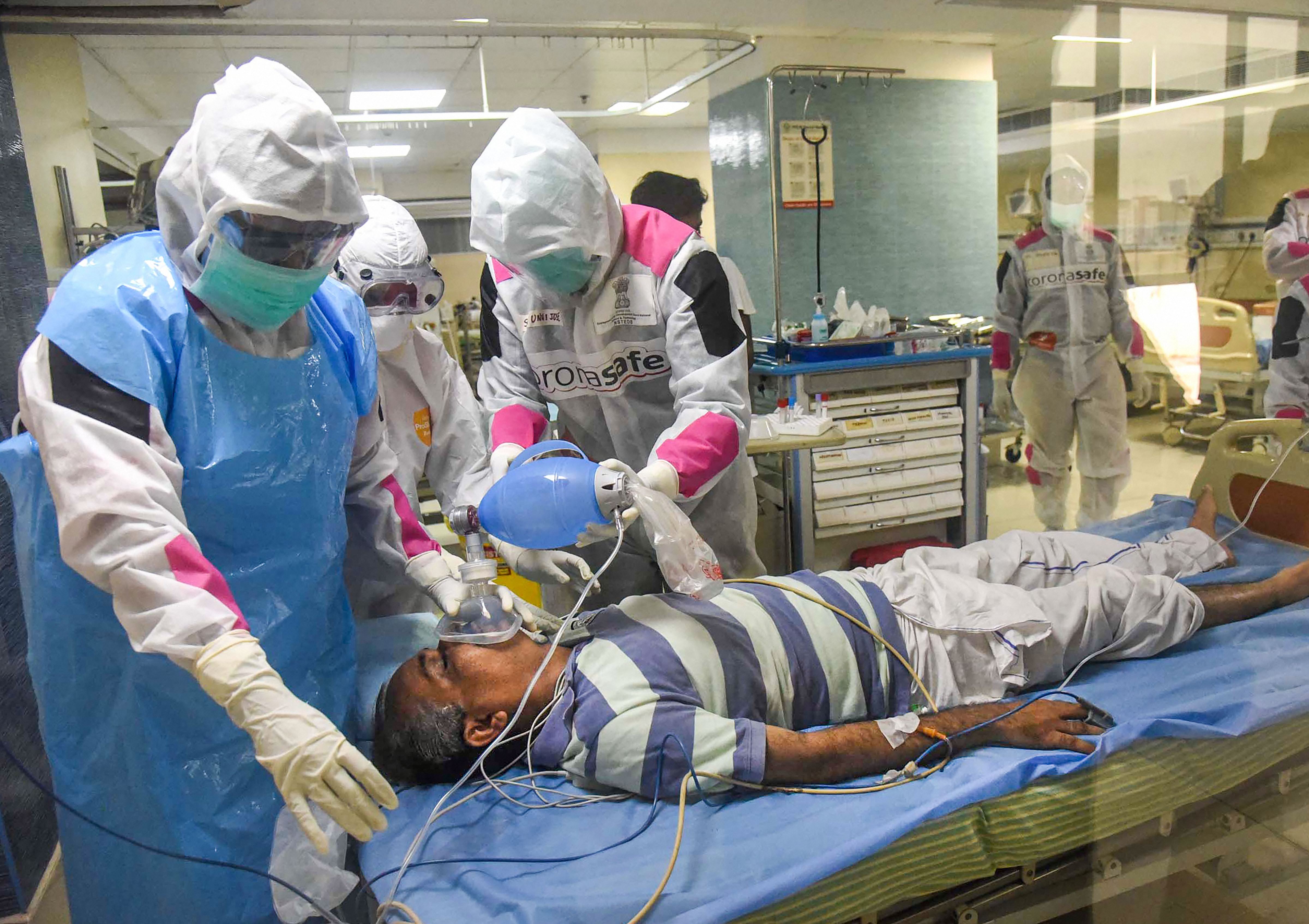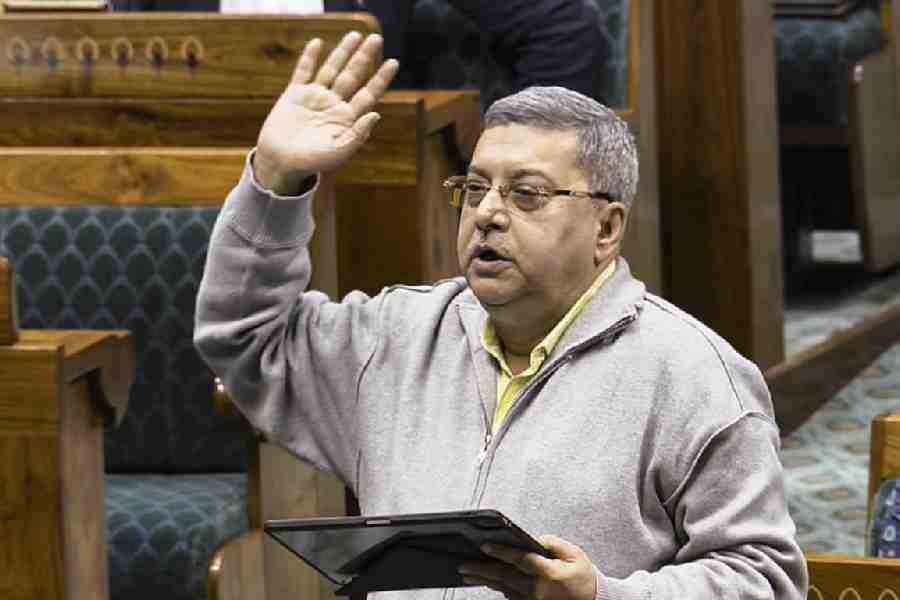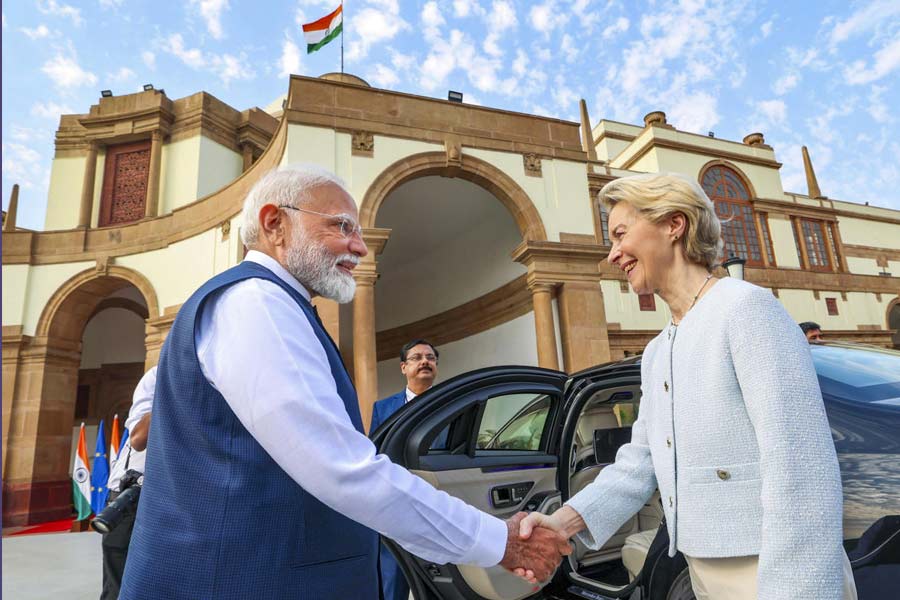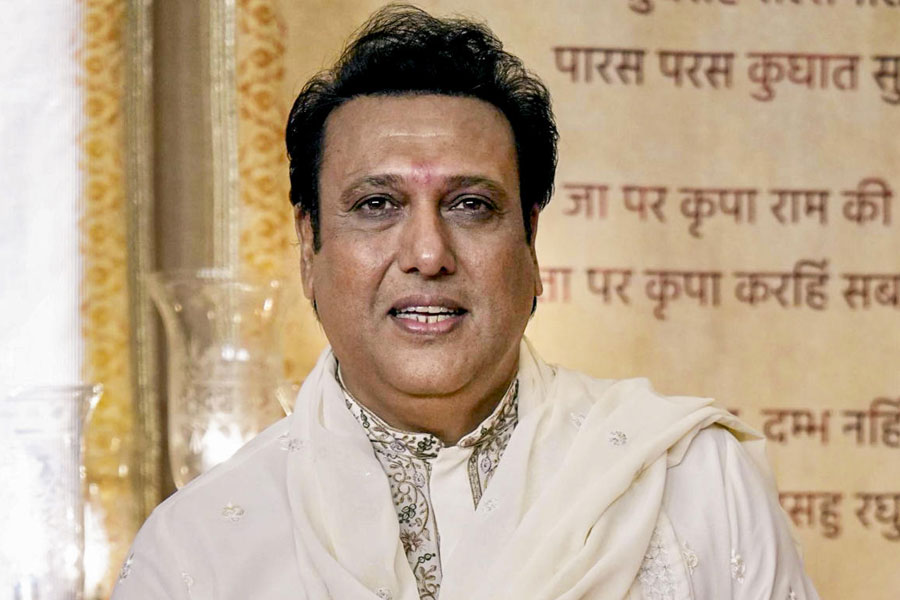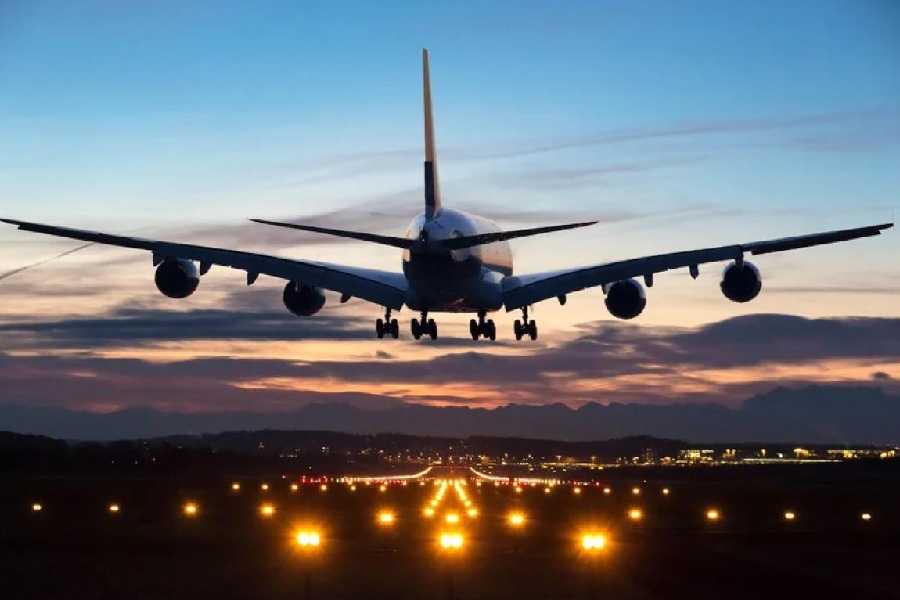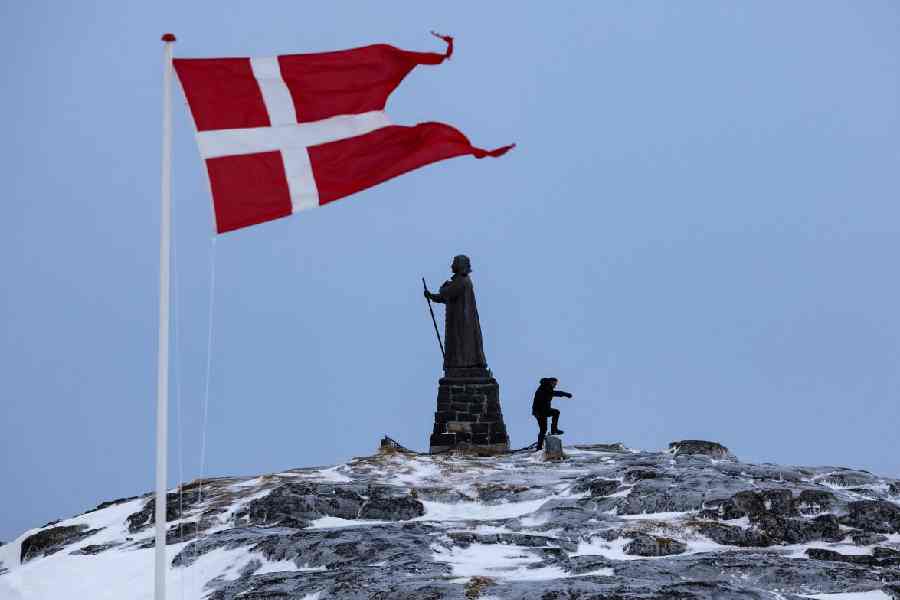Is it time to compare Kerala with the world’s best for curbing Covid-19? Can it stand up there with Germany, South Korea and Taiwan which have squelched rather than flattened the curve?
The answer’s yes. On Monday, Kerala had 408 cases and only three deaths. By comparison, Taiwan had 420 cases and six deaths. Says Kerala Chief Minister Pinarayi Vijayan: “Our recovery rate is the highest and our mortality rate is the lowest in the country at 0.58 per cent as compared to a world average of 5.75 per cent.”
Vijayan, the grey-haired, slow-speaking chief minister has been the hero of the hour. As the state stared at potential disaster, the 76-year-old political veteran has been unflappable in the face of every emerging crisis. He instituted airport screening two weeks before the rest of India, minute contact-tracing, strict quarantine and swift treatment and as well as sheltered migrant workers trapped by the lockdown.
Kerala’s first Covid-19 case was a medical student who arrived from Wuhan on January 24 and was diagnosed six days later. It was the first Covid-19 infection to be recorded in India and for several weeks, Kerala alarmingly topped the charts with more cases than anywhere in the country. On March 30 it had 32 new cases.
Now that’s all changed. Kerala’s 408 cases are far behind Maharashtra’s 4,066 (Mumbai itself has crossed the 3,000 mark). “It’s a really remarkable performance, especially considering the state has huge contact with the rest of the world” with so many workers abroad,” says T.K.A. Nair, former advisor to prime minister Manmohan Singh, who’s now settled in Kerala.
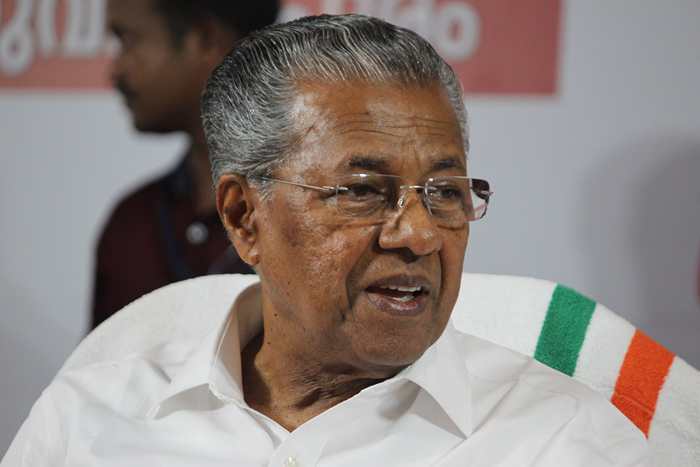
Vijayan, the grey-haired, slow-speaking chief minister has been the hero of the hour. As the state stared at potential disaster, the 76-year-old political veteran has been unflappable in the face of every emerging crisis. (Wikipedia)
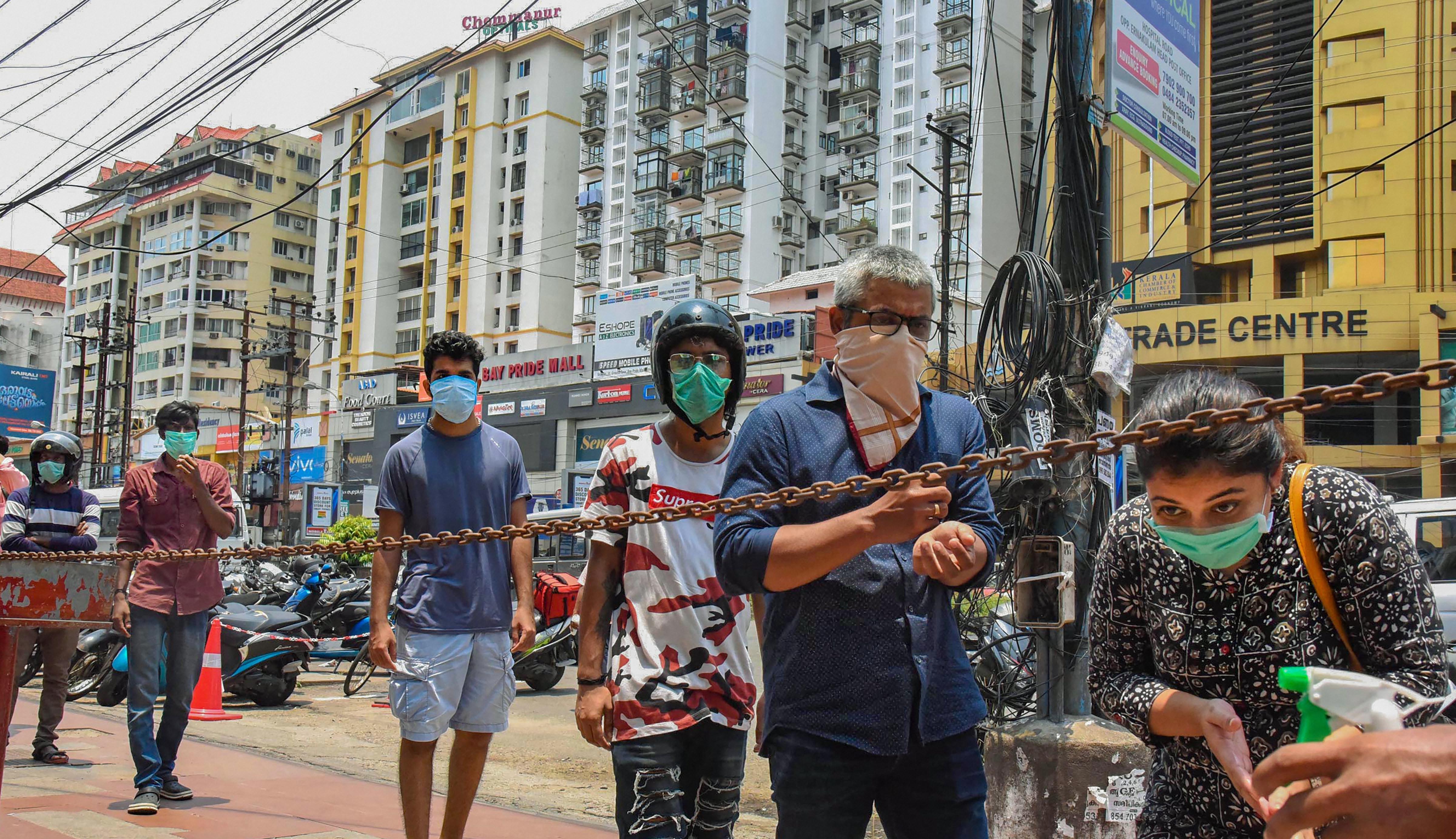
People stand in a queue at a mobile phone shopping complex to purchase and repair mobile phones during the nationwide lockdown in the wake of coronavirus pandemic, in Kochi, Sunday, April 19, 2020. PTI
Kerala’s Kasaragod strategy received praise even from the Central government. On the weekend, Health Ministry Joint Secretary Luv Agarwal pointed out that more than 17,000 people were quarantined and kept under watch in that district. At a peak, Kerala had around 1.7 lakh people under observation but that’s now down to around 46,000. On Sunday, there were no new cases in Kasargod.
Vijayan’s role has been to bring this all together. His days have been taken up with video conferences with pandemic-fighting workers at all levels. He even persuaded opposition leader Ramesh Chennithala to join him for a video conference with panchayat members and municipal councillors. Says Brittas: “He had the opposition leader with him to show they are united in this fight.”
In fact he’s thrown all the state’s resources into the struggle. The police were roped in to make videos publicising the state’s Break the Chain campaign and to stress the need for social distancing. Panchayat, ASHA workers and also NGOs were enlisted to keep constant tabs on the health of people in home quarantine. In Malappuram district, medical college students were sent to assist officials at nearby airports and engineering college youngsters devised apps that enabled the government to keep track of infection-related details. Along with the tight lockdown, social supports were put in place that included midday meals delivered to children whose schools were shut.
Says Dr Shimna Azeez, at Government Medical College, Manjeri in Malabar’s Malappuram district: “I’ve done a handwashing video and one on the right way to wear a mask. You’ll see a lot of doctors doing such things. Every district collector has his or her own Facebook page as do many health workers.” She adds: “There’ve been videos made of little children washing hands. Even they’re taking it so seriously.”
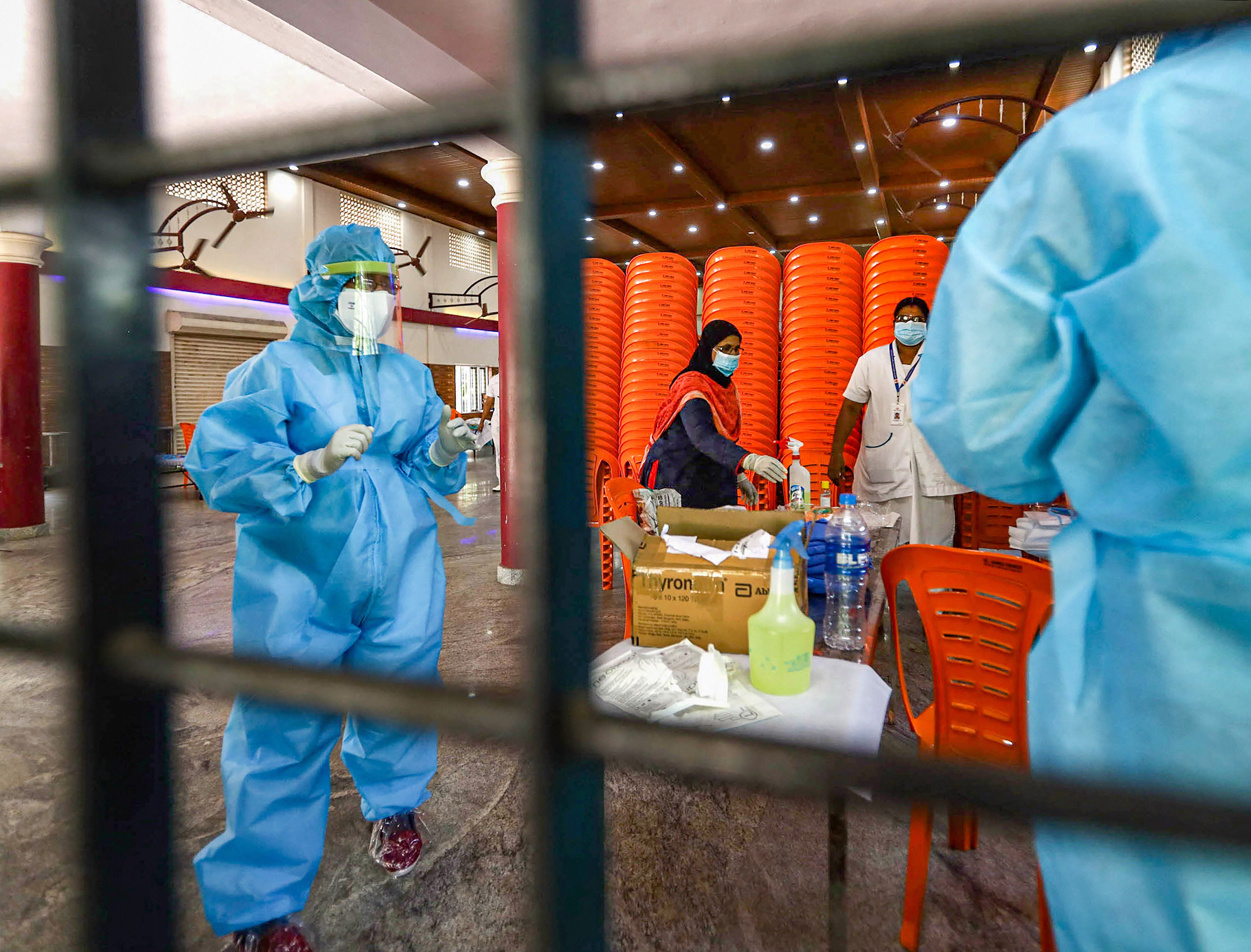
Doctors conduct a real time mock drill at Covid-19 TeleHealth unit, at Indian Medical Association, Cheranalloor in Kochi, Thursday, April 16, 2020. PTI
The last few months have undoubtedly also been a time of great transformation for Vijayan, who’s certainly one of the more complex personalities at the top levels of politics in India. He’d already earned plaudits for his efficient management of the Nipah virus and the floods but the struggle against Covid-19 will be the one for which history will remember him. Today, Vijayan has found himself transformed from a media-baiter to the star of Kerala’s volatile political firmament -- quite a transformation for a politician who has faced press hostility for a large part of his career.
Vijayan started out working as a handloom weaver before signing up for his BA in Thalassery and he became active in politics during his university days. He had a tough political learning curve as the Kannur Communist Party district secretary in the state’s Malabar region. Kannur is sometimes described as the ‘Wild West’ of Kerala politics where the Communists are in direct conflict with the RSS and where several political murders have taken place. In 1998 he became the CPI(M)’s state general secretary and held the post till 2015. Possibly unsurprisingly, it’s said he has an iron grip on the party machinery.
As he climbed the political ropes, Vijayan had to face an inner party battle with the highly popular former chief minister V. S. Achutanandan who had strong links with the press. “Vijayan was demonised,” says one political observer. Vijayan, who’s not an extrovert, found it tough to build a strong public image.
Still, he proved his credentials as an administrator when he took over the power ministry in the 1990s and converted perennially power-deficit Kerala into a power-surplus state. But he also stumbled in the power ministry because of the SNC Lavalin case now in the
Supreme Court. He’s been released from the case by the high court but the fact it hasn’t come before the judges yet means it’s a threat over his head.
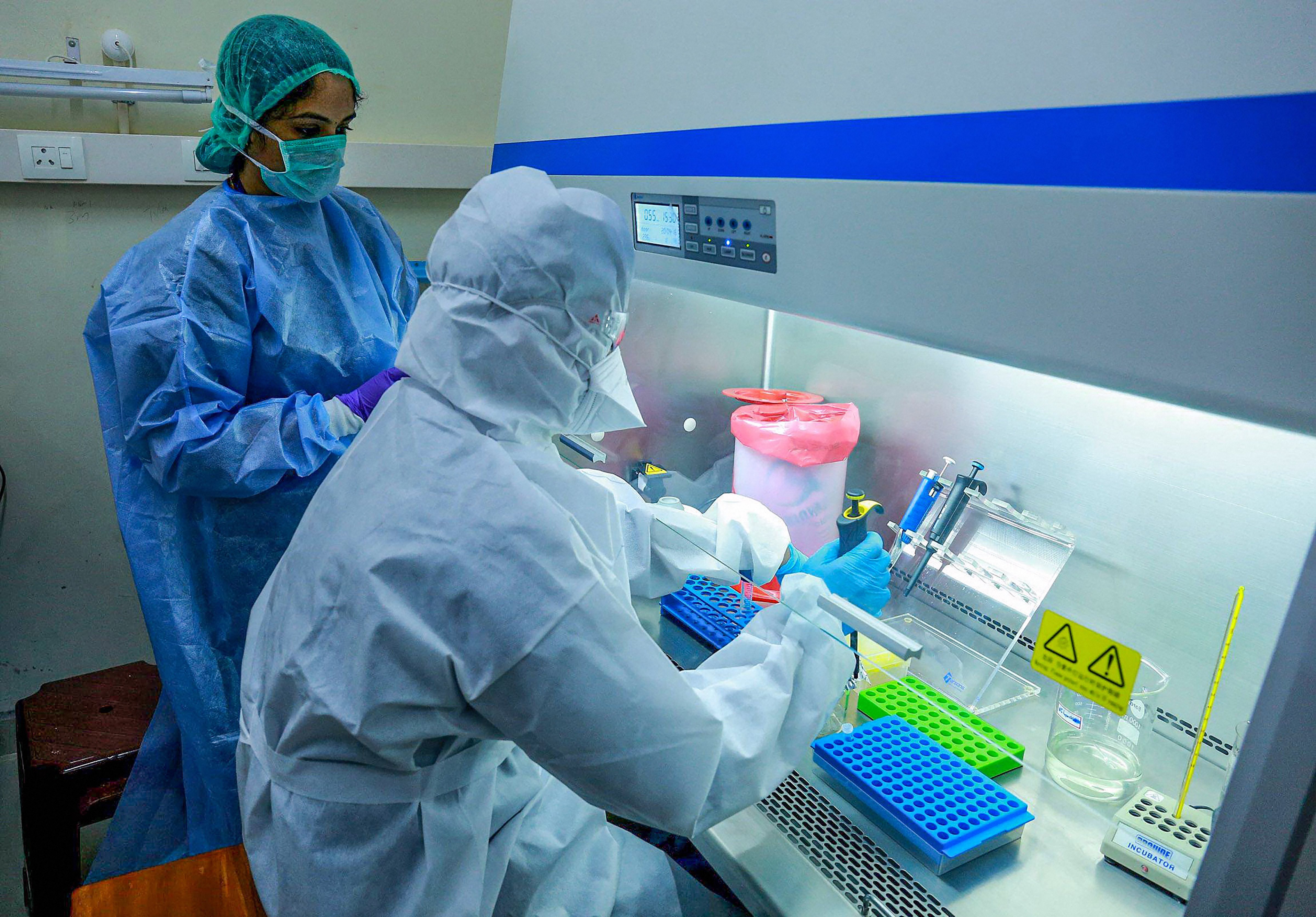
Medics at the real-time Polymerase Chain Reaction laboratory (PCR lab) at the Kalamassery Medical College Hospital, during the nationwide lockdown in wake of the coronavirus pandemic, in Kochi, Thursday, April 16, 2020. PTI
Of course, Vijayan has had Kerala’s justly praised and extensive public health care system into which successive governments have invested heavily to help carry out its anti-Covid-19 campaign. But what’s also assisted the state government in getting its break-the-chain message across has been Vijayan’s proactive communication. Vijayan has always had a love-hate –- less love, more hate -– with the lively, hard-hitting Malayalam press. Early in his tenure, he abandoned holding press briefings after cabinet meetings.
But when the global pandemic arrived in Kerala, he turned over a new leaf and held daily televised press conferences that have become ratings winners, tuned into by viewers across the state. These briefings aren’t watched for his lively performances. On the contrary, most of the time, he’s gazing down at his notes and reading haltingly, only occasionally glancing at the cameras.
But the overall impact of Vijayan’s dour, precise manner has been to reassure the public and convince them that the government is placing all the facts before them -- and crucially, that’s it’s on top of the situation. It’s textbook tactics for keeping public confidence high and ensuring public cooperation. “This selfless cooperation of the general public has played a major role in keeping Kerala safe. The people of Kerala have stood in unison and wholeheartedly agreed to all the directions issued by the state government,” Vijayan said a few days ago.
Through all the scares of the last two and a half months, Vijayan has been the picture of straight-talking calm. Covid-19 arrived in Kerala when it was still mostly confined to China and other parts of Asia. And once the virus landed, cases surfaced very swiftly elsewhere in the state. On February 3, another medical student back from Wuhan tested positive in northernmost district Kasaragod, over 500km from Thiruvananthapuram. It was in Kasargod where the Covid-19 crisis looked like turning unmanageable with 169 cases at the peak. “We didn’t want people to panic and gradually tightened everything. Then we went for a complete lockdown,” says a government official.
Apart from stopping the infection, there were the social problems to be tackled. As daily work slumped to zero, Kerala’s 2.5-million migrant workers from states as far flung as Odisha,
Bengal, Assam and Uttar Pradesh began demanding transport home, even though the national lockdown was already in force. The state government opened 18,000 camps for them around the state. Vijayan ensured they were treated well, hearteningly calling the migrants “guests” of the state.
Says Nair who has visited the camps in and around Thiruvananthapuram: “In no other state will you find guest workers taken care of so well. Food served regularly and there’s even north Indian-style food.” What’s more, Nair says there’s strong surveillance at the camps to ensure any Covid-19 cases are found fast.
Vijayan can’t claim sole credit, of course for ensuring that Covid-19 is being stamped out ruthlessly. Kerala’s probably the only state in the country that has a well-oiled public health network with general hospitals in all districts except Kasargod, and with efficient primary health centres with well-trained staff.
What’s more, the state has vital experience under its belt accumulated from the not-too-distant past. Just two years ago, Kozhikode district was hit by the highly lethal Nipah virus which was controlled in an impressively short six-week time-frame. That was followed, a few months later, by the mega-floods which immersed large parts of the state. The government won praise for its vigorous response to the flooding even though there were murmurs it could have been avoided had the state’s dams been opened earlier.
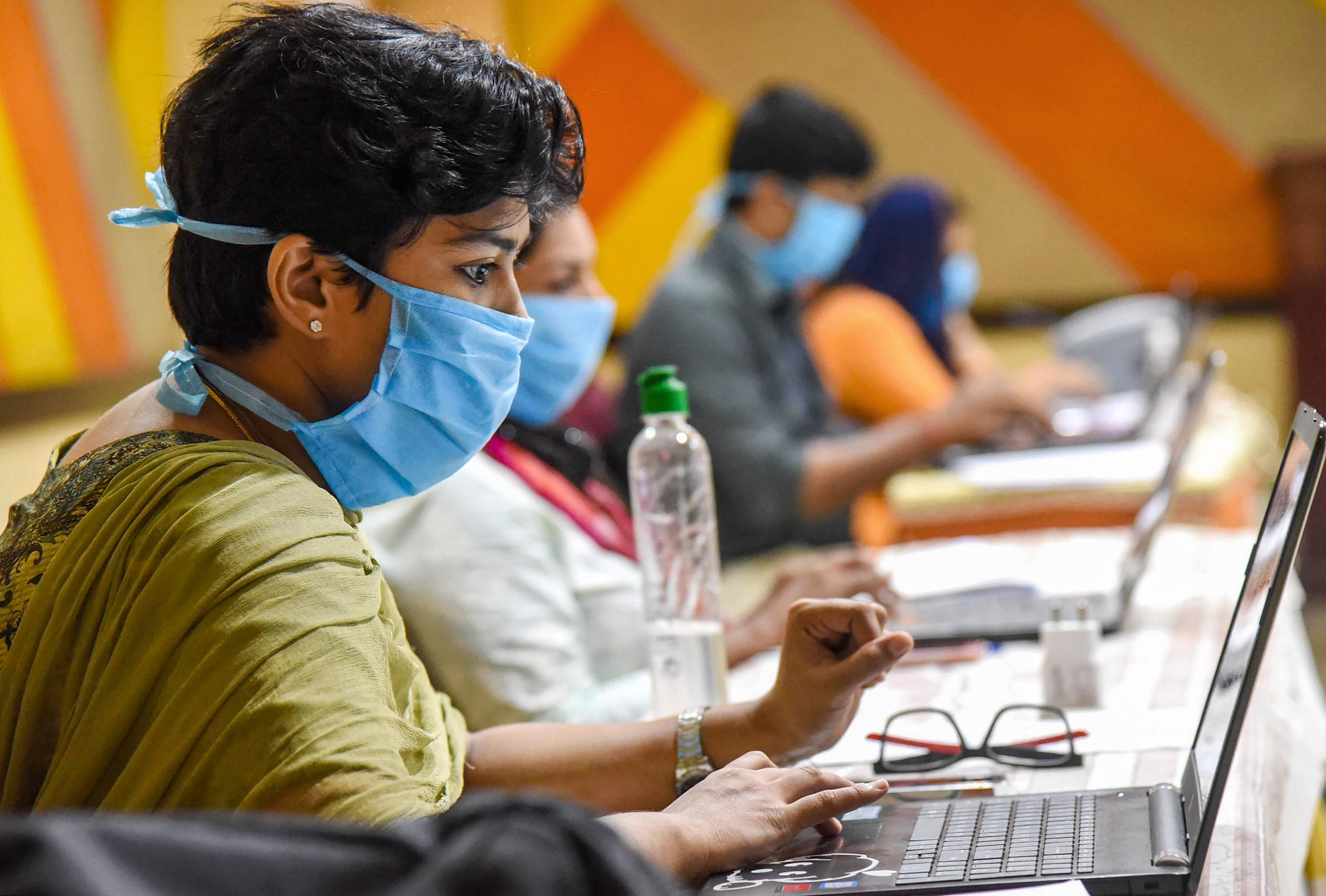
Employees of Health Tele Helpline center wearing face masks are seen working during a nationwide lockdown in the wake of coronavirus pandemic, at IMA house Ernakulam District in Kochi, Saturday, April 18, 2020. PTI
Now, Vijayan’s embroiled in another controversy involving a US company Sprinklr which has been given access to information on Kerala’s Covid-19 cases. He insists no payments have been made to Sprinklr. But opposition leader Chennithala alleges the company’s linked to Vijayan’s daughter who runs a Bangalore-based software firm.
Vijayan has seen his popularity rise and fall and rise again in the last four years. His stock fell after he moved strongly to enforce the Supreme Court’s judgement in the Sabarimala case which laid down that women should be allowed to make the pilgrimage to the temple. That may have been the reason for the Congress winning 19 out of 20 seats in last year’s Lok Sabha elections. Right now, though, his standing is higher than ever before and he’s being compared with the giant of Kerala politics, former Congress chief minister K. Karunakaran.
Vijayan, though, is first to admit that the battle’s anywhere won against Covid-19 even though transmission’s been curtailed. “It’s too soon to say that we are out of danger. We have to maintain a strict vigil,” he says. There are also the upcoming monsoon and the floods it may bring, plus the annual dengue and chikungunya scourges to contend with that will vastly complicate the efforts to keep the virus under control. And this being Kerala, there’s always politics and a state election to be fought next year.
Clearly, the Covid-19 battle has been of a magnitude many times greater than anything that’s gone before it.
But the state’s government’s looking remarkably confident and had been looking to ease the lockdown in two ‘green districts’ Kottayam and Idukki which have been infection-free for some time. It roped in former Chief Secretary, K.M.
Abraham to put together the game plan for lifting the lockdown and drafted leading citizens, including a top media owner and businessmen, to be on the lockdown-lifting committee.
The state planned to partially lift the lockdown in Kottayam and Idukki districts and allow vehicles on odd-even days. It was even going to allow pillion riders on two-wheelers and daytime opening of restaurants and barbers’ shops. But the lockdown lifting strategy drew the ire of the Central Government which issued a stiff letter on Monday asserting Kerala was moving too far ahead of the rest of the country. Vijayan wisely, stayed focused on the larger picture and didn’t tell them – as many thought might have been appropriate – to mind its own business.
John Brittas, media advisor to the chief minister, insists too much has been made of the letter from Home Secretary Ajay Bhalla. “There are constant exchanges between the state government, the CM and the Centre,” he says. The Centre was particularly worried by the opening of barbers’ shops and restaurants, he said, and the state to play it cautiously and suspend those plans. “There was a mood not to allow it,” he says.
Through all the battles of the last few months, the general marshalling his troops has, undoubtedly, been Vijayan, making carefully calculated moves to stay ahead of the fast-moving infections. When the number of cases in Kasargod district exploded, the state sent five teams of doctors and nurses from state capital Thiruvananthapuram. A senior official was also sent to coordinate their efforts and one wing of the still incomplete Kasargod General Hospital was opened in four days flat for Covid-19 patients. Their efforts, working alongside the district administration, have undoubtedly paid dividends.
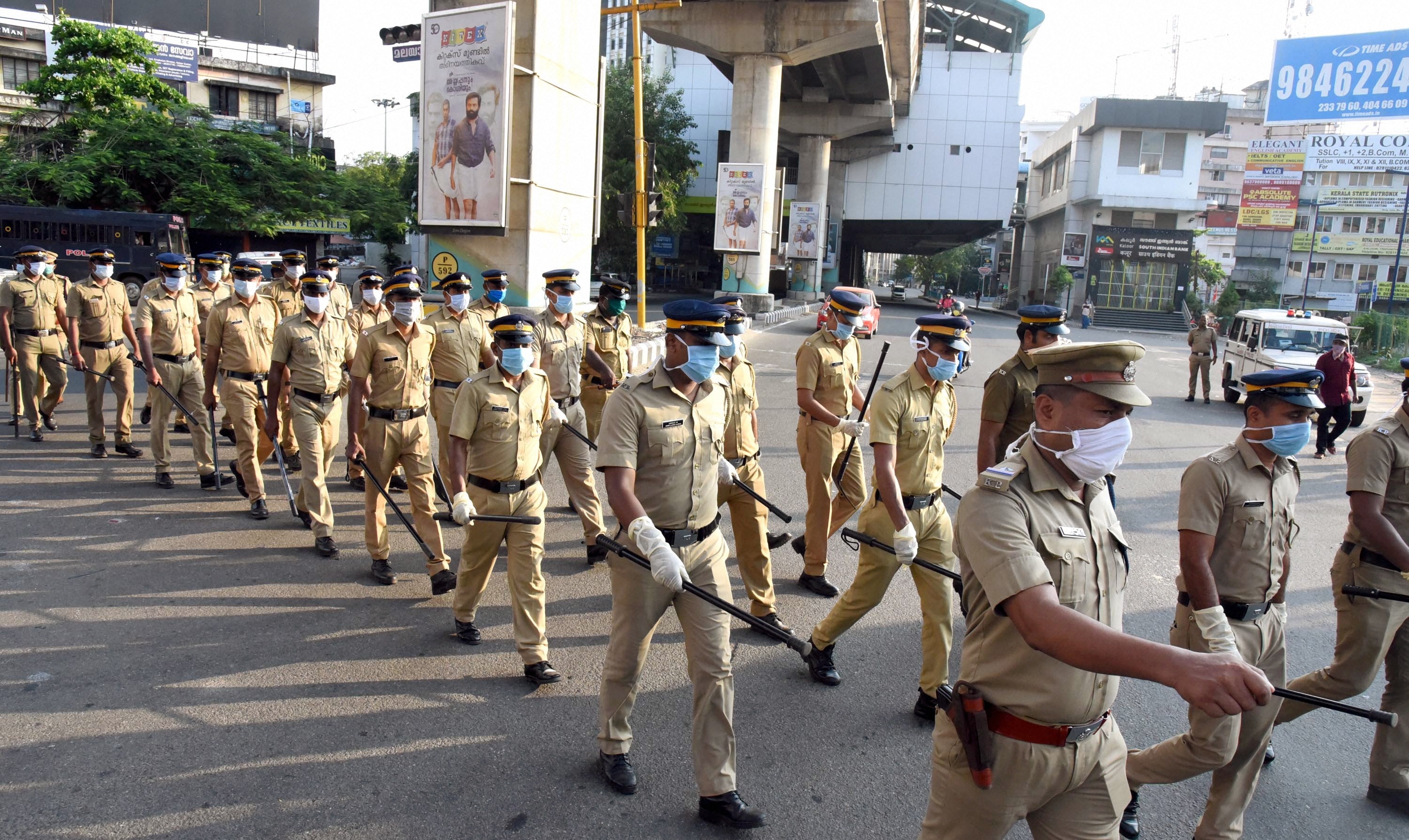
Police personnel conduct a march to enforce the Covid-19 lockdown strictly, in Kochi, Monday, April 20, 2020. PTI

